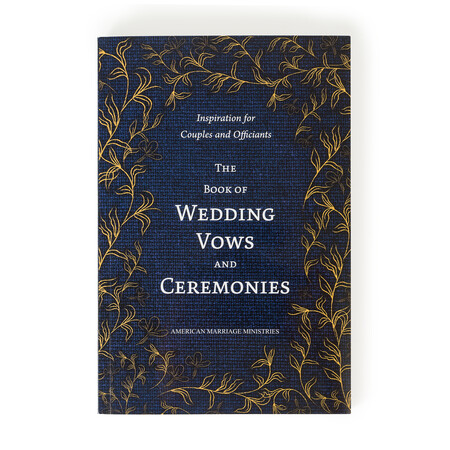(a) A minor who is sixteen (16) or seventeen (17) years of age may petition the juvenile court in the county in which the minor resides for an order granting the minor approval to marry and completely emancipating the minor. The petition must contain the following information:
(1) The minor's name, gender, and age.
(2) Documentary proof of the minor's date of birth.
(3) The minor's address, and how long the minor has resided at that address.
(4) The following information with regard to the intended spouse:
(A) The intended spouse's name, gender, and age.
(B) Documentary proof of the intended spouse's date of birth.
(C) The intended spouse's address, and how long the intended spouse has resided at that address.
(5) A statement of:
(A) the reasons the minor desires to marry;
(B) how the minor and the intended spouse came to know each other; and
(C) how long the minor and the intended spouse have known each other.
(6) Copies of:
(A) any criminal records of the minor and of the intended spouse; and
(B) any protective order:
(i) issued to protect or restrain either the minor or the intended spouse; and
(ii) relating to domestic or family violence, a sexual offense, or stalking.
(7) Evidence that the minor has demonstrated maturity and capacity for self-sufficiency and self-support independent of the minor's parents or legal guardians or the intended spouse, including proof that the minor:
(A) has graduated from high school;
(B) has obtained a high school equivalency diploma;
(C) has a plan for continued education;
(D) has completed a vocational training or certificate program;
(E) has attained a professional licensure or certification; or
(F) has maintained stable housing or employment for at least three (3) consecutive months prior to filing the petition.
(b) A court with which a petition under subsection (a) is filed shall:
(1) set a date for an evidentiary hearing on the petition;
(2) provide reasonable notice of the hearing to the minor and the minor's parents or legal guardians; and
(3) appoint an attorney to serve as guardian ad litem for the minor.
(c) At the evidentiary hearing, the court shall conduct an in camera interview with the minor separate from the minor's parents or legal guardians and intended spouse.
(d) Following the evidentiary hearing, and subject to subsection (e), the court may grant the petition if the court finds all of the following:
(1) The minor is a county resident who is at least sixteen (16) years of age.
(2) The intended spouse is not more than four (4) years older than the minor.
(3) The minor's decision to marry is voluntary, and free from force, fraud, or coercion.
(4) The minor is mature enough to make a decision to marry.
(5) The minor has established the minor's capacity to be self-sufficient and self-supporting independent of the minor's parents, legal guardians, and intended spouse.
(6) The minor understands the rights and responsibilities of parties to marriage and of completely emancipated minors.
(7) It is in the best interests of the minor for the court to grant the petition to marry and to completely emancipate the minor. In making the determination under this subdivision, the court shall consider how marriage and emancipation may affect the minor's health, safety, education, and welfare.
A court that grants a petition under this section shall issue written findings regarding the court's conclusions under subdivisions (1) through (7).
(e) The following, considered independently or together, are not sufficient to determine the best interests of a minor for purposes of this section:
(1) The fact that the minor or the intended spouse is pregnant or has had a child.
(2) The wishes of the parents or legal guardians of the minor.
However, there is a rebuttable presumption that marriage and emancipation are not in the best interests of the minor if both parents of the minor oppose the minor's marriage and emancipation.
(f) The juvenile court shall deny a petition under this section if the court finds any of the following:
(1) The intended spouse:
(A) is or was in a position of authority or special trust in relation to the minor; or
(B) has or had a professional relationship with the minor, as defined in IC 35-42-4-7.
(2) The intended spouse has been convicted of, or entered into a diversion program for, an offense under IC 35-42:
(A) that involves an act of violence;
(B) of which a child was the victim; or
(C) that is an offense under:
(i) IC 35-42-3.5; or
(ii) IC 35-42-4.
(3) Either the minor or the intended spouse is pregnant or is the mother of a child, and the court finds by a preponderance of evidence that:
(A) the other party to the marriage is the father of the child or unborn child; and
(B) the conception of the child or unborn child resulted from the commission of an offense under:
(i) IC 35-42-4-3 (child molesting);
(ii) IC 35-42-4-6 (child solicitation);
(iii) IC 35-42-4-7 (child seduction); or
(iv) IC 35-42-4-9 (sexual misconduct with a minor).
(4) The intended spouse has previously been enjoined by a protective order relating to domestic or family violence, a sexual offense, or stalking, regardless of whether the person protected by the order was the minor.
(g) If a court grants a petition under this section, the court shall also issue an order of complete emancipation of the minor and provide a certified copy of the order to the minor.
(h) A minor emancipated under this section is considered to have all the rights and responsibilities of an adult, except as provided under specific constitutional or statutory age requirements that apply to the minor because of the minor's age, including requirements related to voting, use of alcoholic beverages or tobacco products, and other health and safety regulations.
(i) A court hearing a petition under this section may issue any other order the court considers appropriate for the minor's protection.
(j) A court that grants a petition under this section may require that both parties to the marriage complete premarital counseling with a marriage and family therapist licensed under IC 25-22.5, IC 25-23.6-8, or IC 25-33.
(k) A court that grants a petition under this section may impose any other condition on the grant of the petition that the court determines is reasonable under the circumstances.
As added by P.L.94-2020, SEC.6.
Back to Indiana Marriage Laws







